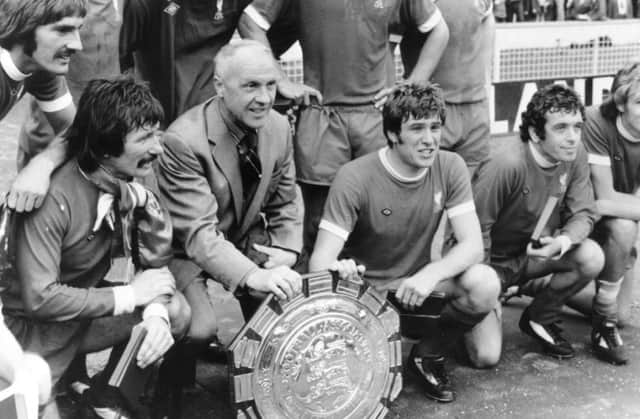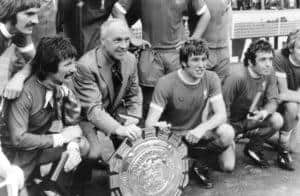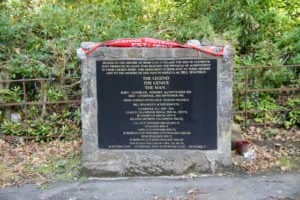Bill Shankly: from Glenbuck to glory with Liverpool


An audio recording of Bill Shankly’s appearance on This Is Your Life was recently unearthed by his grandson, who sustains the great man’s legend with a hotel and museum honouring a Scottish football revolutionary.
On it, the only archive of the immortal Liverpool manager’s outing on the show after the 1973 recording was lost in a fire, sister Netta revealed the obsessional devotion to football that the five brothers - who had five sisters - took in to their weekly routine in a room and kitchen cottage in Glenbuck, Lanarkshire.
Advertisement
Hide AdAdvertisement
Hide AdThe Sunday sabbath, in contrast to the six others, was not a day to be found outside playing football. The brothers, all later professional footballers and of whom Shankly “at our peak could have beaten any other brothers in the world”, improvised by blowing up balloons and kicking them all round their cramped quarters. “The broke vases, but mum didn’t mind”, she said. “One time we broke a a sideboard,” retorted Shankly.


Bill Shankly with, front from left, Tommy Smith, Emlyn Hughes and Ian Callaghan in 1974. Picture: Getty
The great man broke the mould in proving the cornerstone of the modern Liverpool. It wasn’t that he applied that strength of the collective, the “socialism” he saw as a “way of living” - and which as a miner in Glenbuck Colliery could be vital to avoiding death - to football. Fellow Lanarkshire football titans and former pit workers Jock Stein and Matt Busby, at Celtic and Manchester United, later did likewise. As with Shankly, spotted playing for junior team Cronberry Eglinton to win a move to Carlisle United in 1932, they fashioned a playing style for their clubs that became the template for all successive teams in their footballing theatres to aspire to.
What Shankly, a tea-total, non-smoking, fitness fanatic who was a Scottish international and FA Cup winner for Preston North End, did before coaching with Huddersfield Town and did more than any other football manager that had gone before him was bring the game to the masses beyond those immersed in it through his ability to philosophize through wit. He is quoted on t-shirts and mugs as an equal of Aristotle, Sartre or Camus.
A memorial to Bill Shankly in the now uninhabited Glenbuck


That is not to compartmentalise his football achievements, and how he revived a going-nowhere Second Division Liverpool in the 1960s, with promotion and then a top tier title to end a 17 year separation from the honour, and a first ever FA Cup. These feats created a swell that paved the way for the club’s next two decades of success even beyond him retiring in 1974, a year after he had claimed a UEFA Cup, and only months after a second FA Cup to sit alongside three championships. Instead, his droll eloquence helps explain them because Shankly was a preacher with the timing and teasing nature of a stand-up who, with by deploying these gifts, could rally men to his cause. As he said himself: “For a player to be good enough to play for Liverpool, he must be prepared to run through a brick wall for me then come out fighting on the other side.”
They always were because Shankly’s bon mots demonstrated as much as his trailblazing methods - he introduced the concept of five-a-side to training schedules - that he had the brains to fashion winning football teams. He could say so much with an unsurpassed economy of language. “A football team is like a piano. You need eight men to carry it and three who can play the damn thing.” It should never be considered cliched to quote Shankly, who died in 1981, because that would be akin to seeing the work of Shakespeare as hackneyed in being 400-years-old. Shankly is a unique Scottish voice of the past 2,000 years, never mind 200. “A lot of football success is in the mind,” he once said. “You must believe you are the best...and then make sure that you are.” He did.